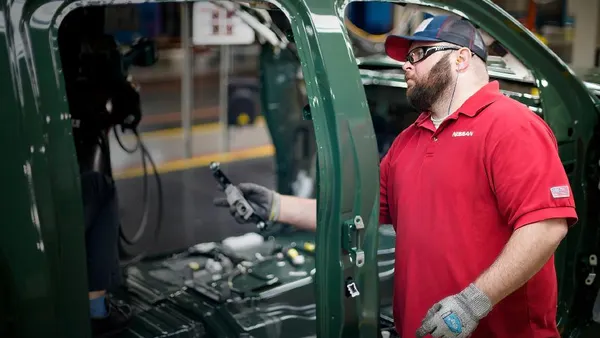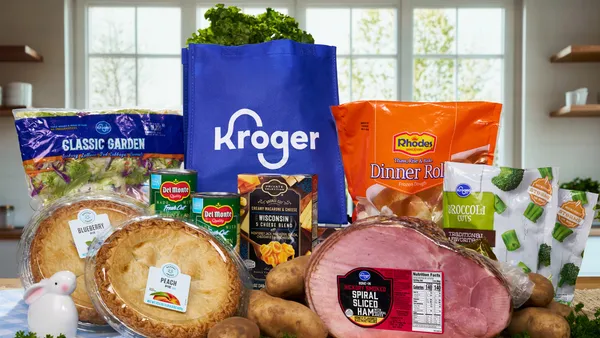Dive Brief:
- Uncertainty stemming from the fourth tranche of tariffs set to take effect Sept. 1 and Dec. 15, and concerns over consumer willingness to pay higher prices "adds a level of caution to our outlook," CEO Corie Barry said on the company's Q2 earnings call Thursday. As a result, the electronics retailer revised down its anticipated operating income for Q4.
- Executives on the call expressed confidence in their ability to mitigate the current and impending tariffs with Best Buy President and COO Mike Mohan explaining to analysts that the company has been pulling forward inventory and adjusting its sourcing, limiting the expected impact of list three on the company's Q3 earnings. However, President Trump's announcement that current tariffs could increase to 30% in the coming weeks and the launch of the fourth tranche have caused concern as peak season approaches.
- Consumer price sensitivity is a concern over the next few months Best Buy CFO Matt Bilunas said, as the "promotion-heavy" nature of back to school and holiday shopping can make raising prices a risky proposition. "We’re not going to be a leader in raising prices, that’s something we’re definitely not going to do," Bilunas said.
Dive Insight:
Navigating the current tariff and trade environment can a bit more art than science, Barry said. "We don’t exactly have a precedence for the quantity of moving pieces that we have in place right now," she said.
However, she expressed optimism that efforts to mitigate the impact now will help the company ride out the volatility until next year, when she anticipates Best Buy will be less exposed to tariffs. "We believe many vendors are going to continue to migrate their manufacturing out of China," she said. "And so, we think the total prospect of business that’s impacted is going to be materially less, even just next year, because you’re seeing those supply chains already start to move."
In the meantime, the company is looking to tackle the increase of list three tariffs from 25% to 30% by "bringing in products ahead of the tariff implementation, [making] decisions around vendor and SKU assortment, promotional and pricing strategies, sourcing changes and other strategies employed in partnership with our vendors," Barry said.
According to Barry, about 60% of the company's cost of goods sold comes from China, however "a massively smaller portion" of that amount will be affected by the tariffs due to the mitigation work.
For the products the company currently has to source from China, inventory was pulled forward quickly enough, or currently has a sufficiently advanced lead time, to avoid the worst of the tariff increases, Mohan said.
Despite executives' optimism, Best Buy's core technology products including computers, smartphones, smartwatches, gaming consoles and certain TV's will be impacted by the tariffs. While sales grew by 1.6% over last year in the second quarter, the figure came in slightly under projected targets. In addition, the company missed Q2 revenue goals, causing the retailer's stock to fall 10% amid analyst concern over its ability to hold out against the expanding tariff lists and rates.














